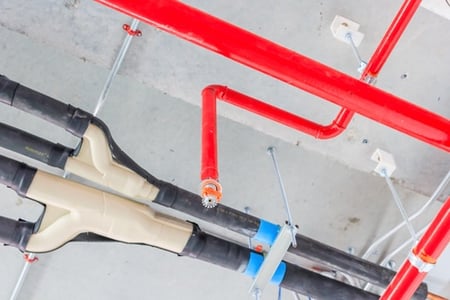When Are Building Upgrades Mandatory?

Most building upgrades aim to improve some aspect of the property, such as appearance or energy efficiency. However, there are cases where a specific upgrade is mandated by NYC laws and subject to a deadline.
NYC building codes are reviewed and updated periodically, and a construction that was originally built to code may become non-compliant under a newer version. However, new requirements are not retroactive in most cases - the building is still considered code-compliant, based on the code version applicable during its construction.
Building upgrades normally fall under one of the three following scenarios:
- Optional upgrades.
- Mandatory upgrades only for major renovations and new constructions.
- Mandatory upgrades for all buildings covered in a law or code.
Identify the most promising upgrades for your building.
Optional Building Upgrades
As their name implies, optional upgrades are not imposed on you by any law or code, but they may bring significant benefits for your building. Solar power systems are an excellent example: No law in NYC forces you to deploy a photovoltaic array, but you can achieve significant power bill savings after installing one. California is the first state to make solar systems mandatory, requiring them on all new residential constructions from 2020 onward.
NYC codes establish minimum performance requirements for energy efficiency and building controls. However, the latest technologies are far beyond the minimum code requirements. If you are considering a building upgrade that improves energy efficiency or other performance aspects, you should aim for the measures with highest financial return - the minimum performance specified in codes only provides a modest return.
Building certification programs like ENERGY STAR and LEED are also optional, but they can improve the public perception of your company significantly:
- ENERGY STAR buildings perform better than 75% of all similar buildings in the USA.
- LEED-certified buildings get approval after an extensive assessment procedure under the guidelines of the US Green Building Council.
NYC laws do not force building owners to get an ENERGY STAR certification, but the city will require public display of energy scores starting from 2020. Even if you are not planning an ENERGY STAR certification, you should aim to have a score above the median value of 50.
Mandatory Upgrades in New Constructions and Major Renovations
As mentioned above, a building that was originally designed according to code may not meet the requirements of newer versions, but it is still considered compliant. However, the opposite does not apply: you cannot design new projects and renovations based on outdated building codes.
An example of this is the NYC Energy Code - the latest version was released in 2016, and the next version is planned for 2019. Assume a development company has planned two identical buildings for 2018 and 2021:
- The first building can be designed according to the 2016 NYC Energy Code, and it will be considered compliant.
- However, the building planned for 2021 may need a design update once the 2019 NYC Energy Code is published. If specifications fall below the new code requirements, the project is not compliant.
The same principle applies if you are planning a major renovation or addition to an existing property. NYC codes normally establish a maximum project scale, and the latest requirements apply for building modifications above the threshold. Minor reparations and modifications are normally unaffected.
Mandatory Upgrades for All Buildings Covered by a Law

NYC local laws make some upgrades mandatory for buildings that meet certain conditions, and this applies even when additions or renovations are not planned. Since these upgrades are legally required, they normally come with a deadline.
- Local Law 26 of 2004 mandates the installation of automatic sprinkler systems for all commercial buildings under its coverage, and the deadline is July 1, 2019.
- Local Law 88 of 2009 mandates lighting upgrades for all buildings under its coverage, and the new lighting systems must meet the NYC Energy Code. The law also requires electric submetering for tenant spaces above certain area thresholds. The deadline is June 1, 2025.
Not meeting the deadline for a mandatory building upgrade comes with penalties, unless you can demonstrate the upgrade was not possible due to factors beyond your control.
Recommendations
By getting a building assessment from professional engineers, you can detect the most promising upgrades for properties. Mandatory upgrades specified by NYC laws are the most critical, and optional upgrades can then be prioritized based on their cost and benefit.
If your property is subject to both LL26 and LL88, consider scheduling both projects together. Sprinkler installations and lighting upgrades both involve disruption of your ceiling structure, requiring the temporary removal of ceiling tiles and other components. With smart project scheduling, you can meet both laws while dismounting your ceiling only once.

Keith Fink
Keith is the Franchise Brand Manager at NY Engineers, Keith is all things related to our project portfolio, brands and all things you need to know before we start your project.
Join 15,000+ Fellow Architects and Contractors
Get expert engineering tips straight to your inbox. Subscribe to the NY Engineers Blog below.
